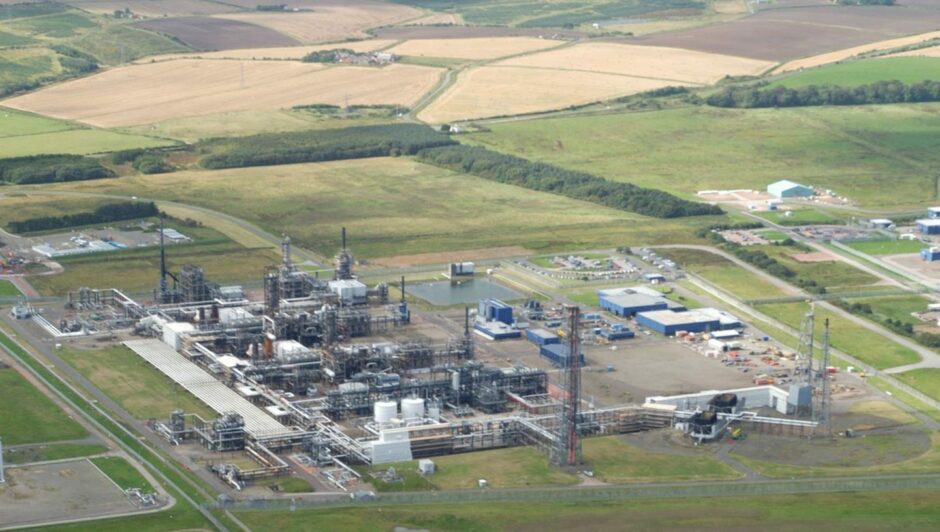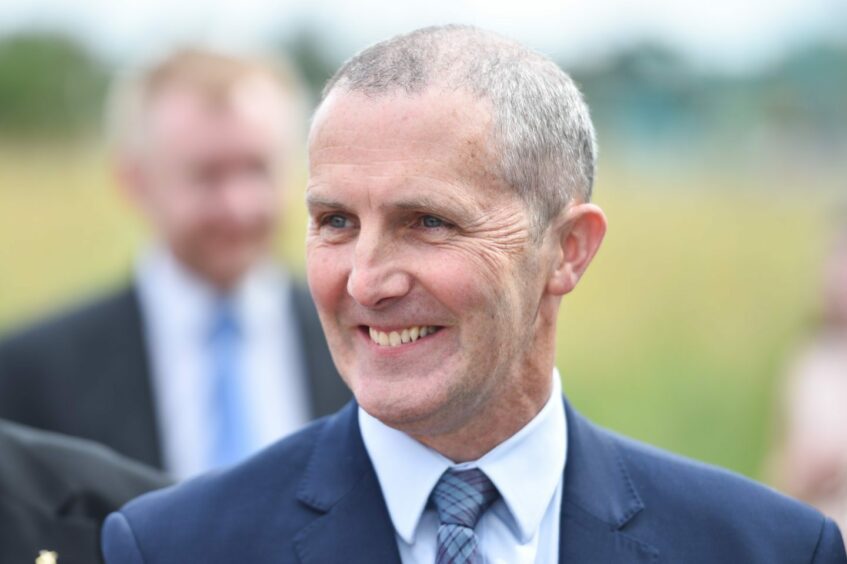
Scotland’s energy secretary has said there is no time to waste in getting the Scottish carbon capture and storage (CCS) cluster the green light.
Michael Matheson visited the St Fergus gas plant on Friday, home to the Acorn CCS project.
Acorn forms the backbone of the “Scottish Cluster”; a project to substantially reduce emissions from heavy industry across the country by storing CO2 in depleted North Sea gas reservoirs.
The Scottish Cluster missed out on UK Government funding back in October and, despite hope it will be picked during a “track 2” announcement this year, Mr Matheson said it is crucial the scheme can get up and running immediately.
“I don’t think it can be stated enough that the Scottish cluster is mission critical to Scotland meeting its net zero target by 2045 and for the rest of the UK reaching its net zero target by 2050.
“The longer that is that any decision around the Acorn project going ahead is delayed then the greater risk we cause to meeting those targets and the longer environmental damage continues to be caused as well.
“If there’s anything we need to get across to the UK government is that there is no time to delay on taking forward the Scottish cluster at because it is absolutely critical to delivering on net zero targets – and not just here in Scotland but across the UK as a whole.”
In reply, Scottish Conservative MP for Banff and Buchan, David Duguid, Mr Matheson was “political point scoring”.
“CCUS will play a key role in the UK achieving our net zero targets, which is reflected in the £16 billion North Sea Transition Deal and the £41 million already invested by the UK Government into Acorn.
“Yet, the SNP continue to talk down this progress and want people to believe that Acorn isn’t going to happen when it absolutely is.
“In a meeting with NECCUS earlier this week and in my ongoing engagement with the Acorn Project, it is clear to me that the SNP need to get off their grievance high horse and start working constructively with the UK Government and the developer to ensure this project’s success.”
ScotWind event in Aberdeen
Mr Matheson highlighted oil and gas as “a strength in Scotland’s transition to becoming a low carbon economy” thanks to transferrable skillsets to renewables.
Looking long-term he said that speeding up deployment of cheap, clean resources like offshore wind is one of the most effective ways to protect consumers.
Scotland is on course to do that thanks to projects unveiled through the huge ScotWind leasing round in January.
A supply chain event is planned in Aberdeen, in conjunction with the Energy Transition Zone, for ScotWind, expected to be attended by First Minister Nicola Sturgeon, Sir Ian Wood, and Mr Matheson.
In developing offshore renewables, Mr Matheson said it is crucial that Scotland reaps the full economic benefits.
“One of the key things about developing our onshore and offshore wind sector is to make sure we are not just a production base for energy itself, but we are making we are manufacturing the equipment which is needed to build and deliver our renewable energy projects in the future.
“That opportunity was missed in the 80s and 90s with onshore wind, and I’m absolutely determined to ensure that we do not allow that to happen with the developments of offshore wind to the scale that we are taking forward in the ScotWind projects.
“Alongside that I’m also very clear that we need to maximize the potential that is now emerging around the deployment of hydrogen as an energy source in the future, both for our own domestic purposes, but also the very significant export potential which is now emerging.”
Recommended for you


 © Supplied by DC Thomson/ Jason He
© Supplied by DC Thomson/ Jason He © PA
© PA